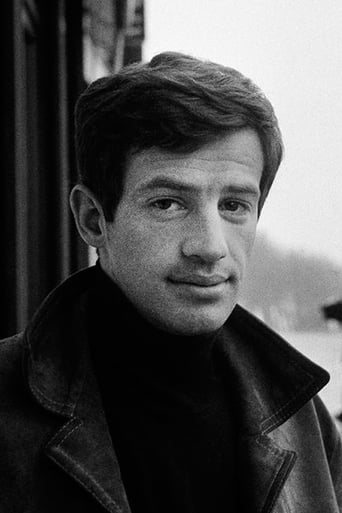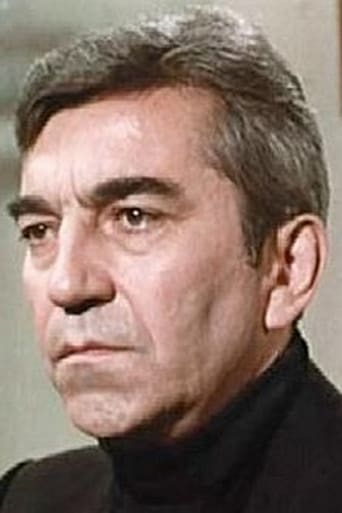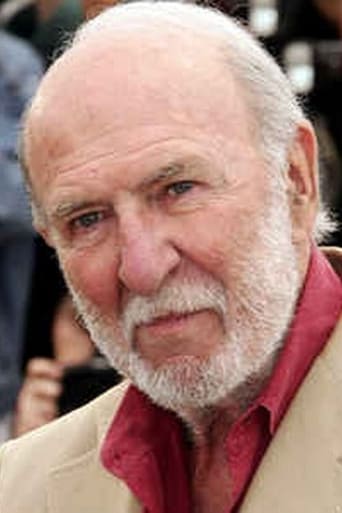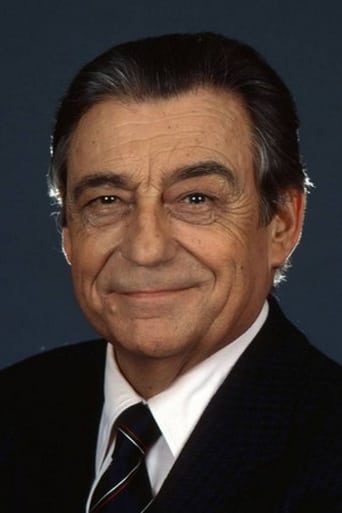Myriam Nys
The French title is, of course, richly ironic, as the movie describes the very specific evil which arises when a man-made catastrophe hits an area (in this case, a smiling beach and an hospitable town) made for summer picnics and lazy walks. Moreover, the movie makes the point (and how) that two days last an eternity for people surrounded by nerve-wracking danger.Serpent-like, the movie moves easily and fluidly from humor to sadness, from profundity to absurdity, from banality to despair and from bitterness to resolve. The war atmosphere is convincing and realistic and there are some fine performances. Belmondo, who is both the hero and anti-hero, gives a performance of rare humanity and maturity ; in my humble opinion, this is one of his best roles.This does not mean that "Weekend" is free of tonal missteps. I have always been amazed by the weird "love affair" tacked unto the story ; it may have been meant as a ray of sunshine or a beacon of hope but if so the effect misfires badly. This is pretty much the passive / aggressive relationship from hell, born in darkness and quite as scary as any of the military mayhem flattening the town.There looms a chasm between "Weekend" and the very recent "Dunkirk" : both movies are radically different in structure, scope, tone and ambition. It's remarkable how the human imagination can shed such different lights on identical (or at least vastly similar) events.
ma-cortes
This an important, interesting movie depicting Battle of Dunkirk , this was an important battle that took place in Dunkirk, France, during the Second World War between the Allies and Germany . As part of the Battle of France on the Western Front, the Battle was the defence and evacuation of British and allied forces in Europe from 26 May–4 June 1940 , being shot with monumental logistics and means of effecting the landings to rescue escaped soldiers . This spectacular adventure about one of the most difficult campaign of war detailing the epic feats of some brave heroes contains noisy action , German raids , idealism , romance , unlimited courage , breathtaking battles and impressive sandy outdoors . Set during World War II, and stuck on the beaches near Dunkirk , Julien Maillat (Jean Paul Belmondo) attempts to join Great Britain by boat with the English Army , but cannot succeed . He , then , attempts to organize the life for him and his soldiers friends as Pinot (Georges Géret) , Pierson (Jean-Pierre Marielle) and Dhéry (Pierre Mondy) between shells , plane attacks on the beaches , bombings , and mayhem . Meanwhile , he meets a beautiful girl (Catherine Spaak) who is about to be raped . This spectacular war movie contains thrills , exciting battles , aerial raids , dogfighting , romance and historical events . It is an enjoyable movie about friendship , warlike feats , courage and good feeling . This War movie packs crossfire , large-scale action , battles , shots of troops , landings and many other things . This film's source novel "Weekend at Zuydcoote" by Robert Merle won the 1949 Prix Goncourt, a prestigious French literary award . Acceptable movie pulls things together enough to rise thanks to continuous images of military marches , explosions , smoke and shootouts . This would-be blockbuster is not a description of such an important event but it is a context in which the battle offers the concrete development , life and death , a few men , Belmondo and his friends , being surrounded on the beaches of Dunkirk . The pic is well starred by Jean Paul Belmondo , a likable actor who has performed all kinds of genres as adventure : ¨Swashbuckler¨, ¨Le Magnifique¨, ¨The man from Rio¨, Cartouche¨, Polar : ¨Le Professionnel¨, ¨Stavisky¨, ¨Borsalino¨ , Comedy caper : ¨¨The brain¨ , Wartime : ¨Is Paris burning ?¨, ¨Two women¨ and Nouvelle Vague : ¨Pierrot Le Fou¨ "Breathless" . The movie broke box office records after bringing in a lot of money at the French box office . Colorful and evocative cinematography by Henri Decae , being shot at the actual location of one of the operation Dynamo evacuations, on the beaches of Bray-Dunes near Dunkirk . Rousing and thrilling musical score by the great composer Maurice Jarre . The film is magnificently produced with big budget by Raymond and Robert Hakim . This famous event from how was orchestrated the notorious battle and the dangerous , risky landings maneuvers was professionally directed by Henry Verneuil who also made other WWII films : "The Vultures" with Belmondo , "The 25th Hour" with Anthony Quinn and "The Cow and I" with Fernandel . The picture was well based on historical events , these are the followings : General Von Kuechler assumed command of all the German forces at Dunkirk. His plan was simple: he would launch an all-out attack across the whole front . Strangely, he ignored a radio intercept telling him the British were abandoning the eastern end of the line to fall back to Dunkirk itself. Although Churchill had promised the French that the British would cover their escape, on the ground it was the French who held the line while the last remaining British were evacuated. Enduring concentrated German artillery fire and Luftwaffe strafing and bombs, the French stood their ground. On 2 June (the day the last of the British units embarked onto the ships), the French began to fall back slowly, and by 3 June the Germans were about two miles (3 km) from Dunkirk. The night of 3 June was the last night of evacuations. On 4 June , the Germans hoisted the swastika over the docks from which so many British and French troops had escaped under their noses The War Office made the decision to evacuate British forces on 25 May. In the nine days from 27 May–4 June, 338,226 men escaped, including 139,997 French, Polish, and Belgian troops, together with a small number of Dutch soldiers, aboard 861 vessels -of which 243 were sunk during the operation-. British Fighter Command lost 106 aircraft dogfighting over Dunkirk, and the Luftwaffe lost about 135 – some of which were shot down by the French Navy and the Royal Navy . The docks at Dunkirk were too badly damaged to be used, but the East and West Moles or sea walls were intact. Captain William Tennant —in charge of the evacuation— decided to use the beaches and the East Mole to land the ships. This highly successful idea hugely increased the number of troops that could be embarked each day, and indeed at the rescue operation's peak, on 31 May, over 68,000 men were taken off. The last of the British Army left on 3 June and all of them returning to Dover. However, Churchill insisted on coming back for the French, so the Royal Navy returned on 4 June in an attempt to rescue as many as possible of the French rearguard. Over 26,000 French soldiers were evacuated on that last day, but between 30,000 and 40,000 more were left behind and forced to surrender to the Germans .
Andre Raymond
There are only three films to my knowledge that attempt to tell the story of this pivotal event of World War Two. A segment in the very bleak "Atonement", the 1950S Black and White British movie "Dunkirk" and this 1964 french movie.Several years ago I caught about fifteen minutes of this Belmondo film on a cable channel while I was travelling on business. I made it a point to track it down and get a copy on DVD, only to find that the copy I ordered online was an awful English dub.Despite this, I find this movie riveting. As the simple story progresses, Belmondo's character tries to find his way off the beach at Dunkirk and over to England. Director Verneuil keeps the focus on Belmondo's Picaresque adventures, so we have someone to root for.There is a refreshing naiveté to Belmondo's Julien Maillat when compared to some of his later hard boiled characters. He drifts from one twisted adventure to another and as he sees a lot of death and destruction one senses an emotional cocoon forming around him layer by layer. The varied people he meets and their stories are vivid and touching.The "sets", a small coastal town, a ship and the beaches, are appropriately open and huge. The number of extras needed to fill the canvas is stunning and the "battle" scenes are as spectacular as any of those from war movies of this period (excpting The Longest Day).This isn't a deep psychological character study or anything. Julien simply does what most people would do in his situation. He lends a hand here or there or hangs out and philosophizes with his buddies, one of which is a catholic army chaplain slash priest. This of course opens up a discussion of what God is doing about all this.Julien strikes up a relationship with a girl from the town which takes a strange and sinister turn towards the end. I didn't love the story's resolution. I haven't read the book and do not know If the film follows it faithfully. It just struck me as unsatisfying. But despite this the rest of the movie was well worth seeking out. If you can, see it in french with subtitles rather than in its dubbed version.
GrandeMarguerite
It is really amazing that what was one of the biggest popular successes of the 60s in the French cinema has only one review on the IMDb! So here is my little contribution.For those who have seen the recent "Atonement", the story will look familiar as the film is about one of the darkest episodes of WWII (i.e. the retreat of British and French troops at Dunkirk in June 1940), an episode evoked perhaps too briefly in the British film. In June 1940, British and French troops fighting against the Germans in Northern France were forced to retreat to the coastal town of Dunkirk and its suburbs. Their only hope of escape was to cross the Channel to England, but the boats were scarce and all the time they were attacked from the air by German fighter planes. This is literally the background for the whole movie. During two hours, we follow a young soldier named Julien Maillat through what was actually a terrible mess. Based on the first novel by Robert Merle, which was awarded the Goncourt Prize (the French equivalent of the Pulitzer Prize), "Week-end à Zuydcoote" is a realistic and grim portrayal of war. Merle himself was trapped on Dunkirk's beaches in 1940, and this brought a touch of authenticity to his work. Besides, when most war films depict glory and victory, this one is about defeat and loss. Therefore, the movie is not about battles between armies of nameless soldiers; it shows instead the boredom, frustration, fear and anger of ordinary human beings - all compressed into a turbulent two day period. That being said, don't expect one of those French "high brow" films! Henri Verneuil was an excellent filmmaker who knew how to make a real blockbuster (as this one proved to be). Although I never regarded him as an original nor even a prominent director, "Week-end à Zuydcoote" is perhaps his best effort. Well served by an excellent cast (leading man Jean-Paul Belmondo in one of his best parts, Jean-Pierre Marielle, Pierre Mondy as a gradually repulsive swindler...), the movie has benefited from Henri Decaë's exceptional cinematography and Maurice Jarre's fine score. Verneuil has managed to construct a believable reconstruction of the episode, which matches some of the best Hollywoodian movies on that period. The weak point (and this prevents me from giving this movie a 10/10) is the story that unfolds around the encounter of Maillat (Belmondo) and a young woman (Catherine Spaak) who resolutely refuses to leave her home in the suburbs of Dunkirk. This part of the movie seems artificial. While Verneuil is very good at depicting the protagonists' experiences, he proves to be clumsy with this segment. In spite of this minor flaw, "Week-end à Zuydcoote" is a thoroughly enjoyable show and a bitter reflection on war.





